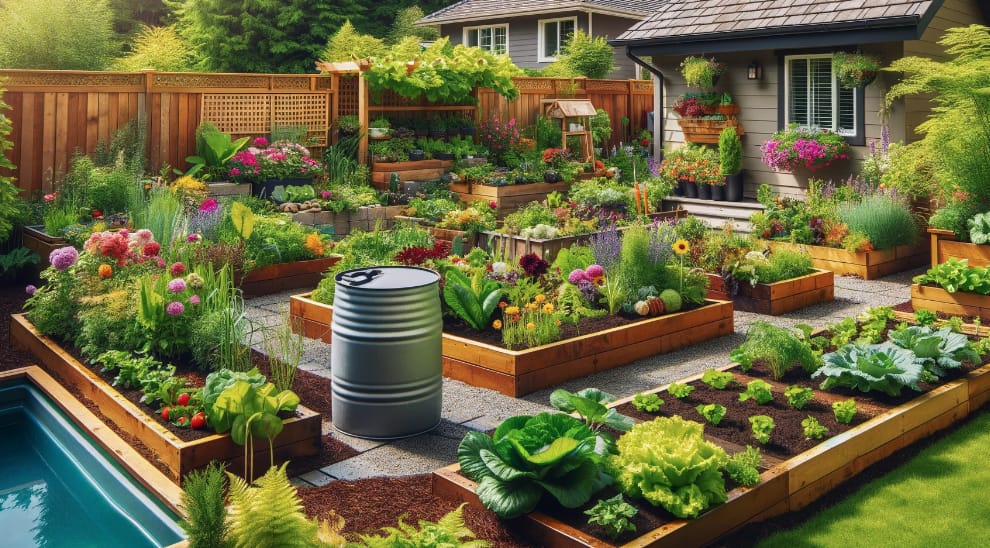- Sprout & Spade
- Posts
- 🌼 Children's Gardening Week!
🌼 Children's Gardening Week!

🌱 Good Morning Sprouters!
May 20th, 2024
Spring is in full swing, and with summer just around the corner, it's the perfect time to get those hands dirty! As the days get longer and the temperatures rise, there’s no better time to indulge in some outdoor gardening.
Speaking of which, did you know the USDA has updated their Plant Hardiness Zone Map?
Yes, global warming is real, and it’s changing how we garden!
📰 This Week's Gardening News & Events
USDA Plant Hardiness Zones Updated You might want to rethink your plant varieties because the USDA has recently changed the Plant Hardiness Zone Map. Yes, global warming is real! This update means that many regions are now warmer, affecting what you can grow and when.
Innovative Gardening Trends for 2024
The 2024 Garden Trends Report emphasizes eco-optimism and innovative gardening practices. It encourages gardeners to incorporate futuristic plants like dragon plants and orchids, and to create "chaos gardens" that are both sustainable and visually stunning. These trends aim to blend aesthetic beauty with environmental responsibility.
National Children & Youth Garden Symposium
Hosted by the American Horticultural Society, this symposium brings together educators and garden enthusiasts to promote youth gardening initiatives. Registration details are available on the AHS website.
National Children’s Gardening Week! (25th-2nd)
Check out your local gardens, libraries and events because it’s the perfect time to introduce your young ones to the joys of gardening. Read more about this week here.
🌦️ Quick Tips for the Week
Northern USA:
Prepare for Planting: The soil is warming up, so it's a perfect time to start planting warm-season vegetables like tomatoes and peppers. Consider using a soil thermometer to ensure optimal planting temperatures. S&S Tip: if you’re anxious to get started, place black plastic over your garden beds a few weeks before planting to warm up the soil faster!
Mulching Madness: Add a layer of organic mulch around your plants to conserve moisture and suppress weeds. This not only helps your plants but also improves soil health as the mulch breaks down. S&S Tip: you can always use shredded leaves or grass clippings, which are free and abundant!
Southern USA:
Hydrate Wisely: As temperatures rise, it's crucial to water your garden in the early morning or late evening to reduce evaporation and stress on plants. Soaker hoses are a great investment as they deliver water directly to the roots, minimizing waste.
Pest Patrol: Keep an eye out for pests such as aphids and caterpillars. Introducing beneficial insects like ladybugs can naturally keep pest populations in check. S&S Tip: plant herbs like dill and fennel which attract beneficial predators.
🌿 Urban Gardening Focus: Maximizing Small Spaces
Living in the city doesn't mean you can't enjoy a lush garden. This week, let's talk about vertical gardening. Vertical gardens use structures like trellises and wall-mounted planters to grow plants upwards, saving space and creating stunning visual displays.
Benefits: Vertical gardening not only maximizes limited space but also improves air circulation around plants, reducing the risk of fungal diseases.
How-To: Start with sturdy structures like a metal trellis or wall-mounted planters. Choose climbing plants such as peas, beans, or even trailing flowers like nasturtiums.
Pro Tip: Using coconut coir as a growing medium in vertical planters can improve water retention and provide better aeration compared to traditional soil.
♻️ Sustainability Tip: DIY Composting
Turn your kitchen scraps into garden gold with composting. It's easy to start and incredibly beneficial for your garden.
How-To: Begin by collecting vegetable peels, coffee grounds, eggshells, and garden clippings. Use a compost bin to keep everything tidy.
Benefits: Compost enriches soil, retains moisture, and reduces the need for chemical fertilizers. Plus, it's a great way to reduce household waste.
Pro Tip: Adding crushed eggshells to your compost not only provides calcium but also helps reduce acidity, making the compost more plant-friendly.
🌸 In-Depth Gardening: Understanding Companion Planting
Companion planting is the practice of growing certain plants together to benefit each other. This can include pest control, pollination, and providing nutrients.
How It Works: For example, planting marigolds with tomatoes helps repel harmful insects, while beans fix nitrogen in the soil, benefiting corn planted nearby.
Why It’s Beneficial: This method reduces the need for chemical pesticides and fertilizers, promotes biodiversity, and can even improve plant growth and flavor.
Pro Tip: Basil is not only great for tomatoes because it repels pests, but also because its strong scent confuses pest insects, making it harder for them to find their favorite plants.
🤣 Punny Plants
Did you know that carrots were originally purple? The orange carrots we know today were developed in the Netherlands during the 17th century.
🔧 Garden Gadget of the Week
Soil health is EVERYTHING when it comes to have perfectly posh plants. And. this dual rotating composter is the bee’s knees. If you don’t have a composter for all your kitchen scraps just yet, check this one out!